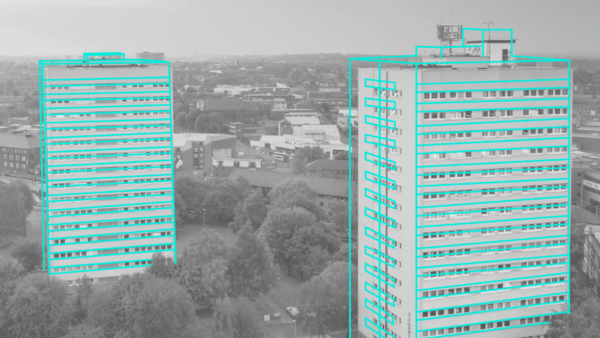UK Urban Futures Commission

UK Urban Futures Commission
Unlocking cities’ potential
The UK Urban Futures Commission is an ambitious enquiry to unlock the potential of the UK’s cities. Led by the RSA in partnership with Core Cities UK and Lloyds Banking Group, the commission will work with cities and citizens to develop a transformative national plan for their future.
Three questions will guide the work of the UK Urban Futures Commission:
- What are cities and what role do they play in our social, economic and environmental systems? What are the biggest challenges and opportunities – both now and in the coming decades?
- In light of those challenges, what is our vision for cities in the future? What do we want and need them to be?
- How do we reach our vision for cities? What steps can we take now to get there?
Unleashing the potential of the UK’s cities
This report seeks to answer the question, how do we unleash the potential of cities so they add dynamism to economies, cohesiveness to communities and redemption to the environment. This is the culmination of 12 months’ of work by the Urban Futures Commission.
The final report from the UK Urban Futures Commission was launched on 28 September 2023 at an event in Sheffield. We thank our Co-chair, commissioners and partners for their expertise and efforts on this piece of work.
Read reports from the UK Urban Futures Commission
-
Unleashing the potential of the UK's cities
Report
There is huge scope for cities to add dynamism to economies, cohesiveness to communities and redemption to our environment. The long-term dividends from doing so are enormous. The question is, how it is to be done?
-
Unleashing the potential of the UK's cities: Core City profiles
Report
This Core City profiles report extends the RSA’s UK Urban Futures Commission report, Unleashing the potential of the UK’s cities, released in September 2023.
Aims and rationale
Building on the successes of our City Growth (2014) and Inclusive Growth (2017) commissions which explored how cities can drive prosperity through inclusive and place-based growth, and in the context of the Levelling Up agenda, this enquiry will develop a detailed action plan for maximising the potential of the UK’s cities.
With over half of the British population living in cities, and amid considerable economic, social and environmental challenges, unlocking cities’ full potential holds the key to building a fair and prosperous country.
In the short-term, this commission will provide cities, decision-makers, and residents with a practical toolkit for strengthening their place, as well as catalysing the investment and policymaking necessary to deliver real results.
In the longer term, the commission will aim to inform the evolving relationship between national and local government, support tailored and inclusive local place-making, and spur sustainable material improvements in the lives of city residents.
As the commission progresses, we’ll be inviting you to get involved and contribute to this piece of work in new and innovative ways.

Join the commission's community space
Help us achieve the short- and long-term goals of the UK Urban Futures Commission by sharing your knowledge in the dedicated community on Circle.
Our commissioners
The commission will be co-chaired by Andy Haldane, CEO of the RSA, and Marvin Rees, Mayor of Bristol and Core Cities UK Chair. Together they will convene seven expert commissioners from the worlds of policy, academia, business and finance, to provide specialist input and oversight.
Co-chairs


Commissioners







The commission will also be supported by an urban finance advisory group of 11 finance and business experts chaired by David Hutchison, former Chief Executive of Social Finance.
Who we're working with

Lloyds Banking Group is a financial services group focused on retail and commercial customers. Its purpose is Helping Britain Prosper, and it does this by creating a more sustainable and inclusive future for people and businesses. With a presence in nearly every community, it is committed to supporting the regions realise their full potential and shaping finance as a force for good.

Core Cities UK is an alliance of 11 cities - Belfast, Birmingham, Bristol, Cardiff, Glasgow, Leeds, Liverpool, Manchester, Newcastle, Nottingham and Sheffield. Its mission is to unlock the full potential of the UK’s great city regions to create a stronger, fairer economy and society.
Supported by

Updates from the UK Urban Futures Commission
-
Counting the cost of bowling alone
Blog
Andy Haldane
In his 2025 CEO Lecture, Andy Haldane addresses how the ever-increasing cross-border flows of goods, people and information affect widening divisions and accelerate the depletion of social capital.
-
Prosperous Places: creating thriving communities
Blog
Tom Stratton
With regional growth at the top of the agenda, it is vital that we create thriving communities across economic, social and natural perspectives. Prosperous Places is a suite of interventions aimed at responding to the unique ambitions and challenges of places.
-
Pride interview: Felipe Tozzato
Blog
Deborah Ajia
The commercial photographer and RSA Fellow explains what Pride means to him, the importance of courage, making friends through rugby and why being gay is his superpower.
Related RSA work
-
A new mission: Design for Life
We are at the start of the latest chapter in the RSA’s rich history as a social change organisation. Read and feedback on our new mission paper, Design for Life.
-
Cities of Learning
Connecting and catalysing place-based lifelong learning ecosystems to transition towards a regenerative economy.
-
Preventing School Exclusions
Find out more about the RSA's work to make local education systems more inclusive and reduce preventable exclusions.








